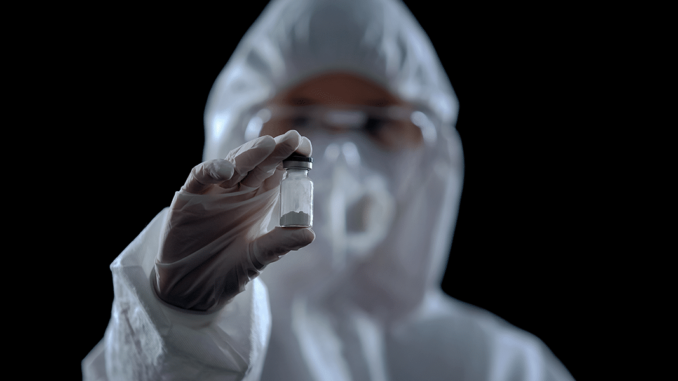
Dr. Mark A. Scialdone, a recognized expert in the field of organic chemistry who specializes in natural product chemistry, is an inventor of 37 issued US patents and the author of 17 peer-reviewed articles in science publications. From 1994 to 2013, he was employed as a principal investigator at DuPont Central Research and Development. Dr. Scialdone is a founding member of the Cannabis Chemistry Subdivision of the American Chemical Society from which he received the 2018 CANN-CHAS Heidolph Award for Excellence in Cannabis Chemistry. Scialdone is currently founder and president of BetterChem Consulting, which provides consulting services worldwide in the chemical, food, plant essential oil, and cannabis industries. He has guided clients on license applications, facility design and build out, equipment installation and optimization, and plant oil extraction for cannabis and hemp processing facilities.
Project CBD: Your presentation with Allyn Howlett at the International Cannabinoid Research Society conference in Toronto (June 2023) discussed the chemical conversion of CBD into Δ8-THC (delta-8 THC) and “numerous additional THC isomers . . . with unknown pharmacological and safety profiles.” Explain what an isomer is and why the lack of information regarding novel THC isomers is problematic.
Dr. Mark A. Scialdone: Isomers are similar molecules having different discrete arrangements of the same atoms creating molecules with different chemical and physical properties. The Δ8-THC being produced from the acid-catalyzed conversion of CBD is an unpurified reaction mixture that contains multiple, non-natural THC isomers, including Δ8-iso-THC and Δ4(8)-iso-THC. These are not present in cannabis and are only formed in the chemical conversion, whose impact on human health is unknown. What’s more, these non-natural THC isomers are difficult to measure — and they are also difficult, if not impossible, to remove from the reaction mixture to purify the Δ8-THC that’s produced. You need access to sophisticated analytical methods to discern product purity from the isomeric byproducts formed, which is why production from hemp-derived cannabinoid products needs to be done under the appropriate FDA regulations for API [active pharmaceutical ingredient] synthesis and manufacturing.
Project CBD: Are there other byproducts from CBD conversion to Δ8-THC that we should be concerned about in addition to these THC isomers?
Scialdone: In addition to the iso-isomers of THC, there are also abnormal isomers called regioisomers that are formed in the conversion reaction. Recently, degradation products such as olivetol as well as chlorinated compounds, have been found in commercial Δ8-THC products tested. The conversion of hemp-derived CBD into Δ8-THC and other synthetic compounds such as HHC (hexahydrocannabinol) occurs without proper regulatory oversight to ensure process standardization, product specification, and accurate third-party testing, all of which are mandated in state-licensed cannabis programs.
Project CBD: What comes to mind when you see an ad for “Δ8-THC pre-rolls” given that the plant doesn’t actually produce the Δ8-THC in the joint?
Scialdone: Did they spray or dip the flower or whole joint with synthetic Δ8-THC? How much Δ8-THC was added to the pre-roll? Did the manufacturers use a solvent to treat the flower? If a solvent is used, does it dissolve the phytocannabinoids and terpenes? What’s the actual Δ8-THC purity of what’s being applied to the flower? How much cheaper is it to produce Δ8-THC-pre-rolls than real cannabis pre-rolls? How much money are Δ8-THC producers making?
These non-natural THC isomers are difficult to measure, and they are also difficult, if not impossible, to remove from the reaction mixture to purify the Δ8-THC that’s produced.
Project CBD: Δ8-THC has proven to be a gateway drug of sorts for a new generation of unregulated, synthetic designer compounds — Δ10-THC, Δ12-THC, THCP, THCO, THCX, etc. — that are widely available. At issue are potent, intoxicating cannabinoids other than cannabis-derived Δ9-THC. Are these compounds actually derived from hemp?
Scialdone: Only Δ8, Δ9, and Δ10 THC can be synthesized from hemp-derived CBD. All the others are made by chemical conversion. Producing and selling psychoactive products outside the regulatory auspices of the FDA or a state-regulated cannabis program is not ethical. These hemp hustlers are in it for the money, making active pharmaceutical ingredients using process chemistry and producing formulated end-products like vape pens, gummies, and sodas in garages, airplane hangars, basements, and warehouses. These products are sold over the internet, at gas stations, and in smoke shops to anyone with a credit card. Of course, the market for Δ8-THC and other recreational synthetics is only made possible by the ridiculousness of cannabis prohibition. End cannabis prohibition, the market for these products will go away and these compounds will be relegated to research labs, where they belong, not the marketplace.
Project CBD: What do you anticipate regarding the next iteration of the Farm Bill in terms of the legality of Δ8-THC and other synthetic intoxicants?
Scialdone: Unfortunately, I believe that this is a red herring since the USDA’s regulatory authority over hemp ends at harvest. The FDA is supposed to regulate hemp-derived CBD products. The FDA recognizes the need for a different regulatory pathway to properly regulate cannabis/hemp. But the FDA has failed to adopt a regulatory strategy to address this issue. The next version of the Farm Bill should clearly and concisely differentiate high Δ9-THC cannabis from industrial hemp. In no uncertain terms, the Farm Bill must be amended to close the specious THCA-hemp flower loophole that’s enabling the unregulated sale of concentrated, intoxicating, and synthesized cannabinoids. If farmers and manufacturers want to sell psychoactive cannabinoids, they should get a state-issued license to grow and process cannabis.
© Copyright, Project CBD. May not be reprinted without permission.
Rec reading:



Be the first to comment